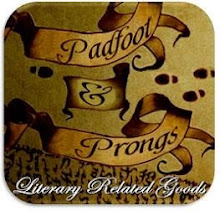Marissa Doyle was kind enough to write up a guest post about writing historical fantasy! Marissa is the author of Bewitching Season and Betraying Season. For those lovers of Libba Bray's trilogy, you guys would love Marissa's book! I haven't gotten my paws on her second book yet (which was released this year), but I simply adored her first one. I'm crossing my fingers for getting it as an Xmas or Birthday present.
Playing the “What if?” game: Historical Fantasy
Historical fantasies and their first cousin Steampunk novels are fast growing in popularity. They’re also, as far as I’m concerned, the most fun sub-branches of fantasy fiction. Not that I’m prejudiced or anything.
Historical fantasy (HF, since I know I'm going to get tired of typing it out) is fiction which takes place in a historical setting where a supernatural or fantastical element is an integral part of the plot. A subset of this is alternate history, in which historical reality is changed in some way and explores what might have happened, say, if the Viking settlement of America had succeeded or Napoleon not been defeated; fantastical elements might or might not be included.
Historical settings prior to World War II seem to fare best in HF, perhaps because anything much more modern simply makes the fantasy harder to meld in: nuclear bombs and magic wands, at least in my mind, are improbable bedfellows. The nineteenth century is a wonderful setting for HF because it is far enough back in time to have an aura of “otherness”, yet familiar too, so that readers can easily picture the world (especially if they’re Masterpiece Theatre fans).
There are several ways to approach writing HF. The alternate history method is popular: in Jonathan Strange and Mr. Norrell by Susanna Clarke, the title characters, both magicians, use their magic to help the British army defeat Napoleon (the Battle of Waterloo segment is particularly wonderful). Naomi Novik’s Her Majesty's Dragon series introduces aerial warfare by dragon into the Napoleonic Wars. In YA, there’s the Sorcery and Cecelia series by Patricia C. Wrede and Caroline Stevermer, which take place in an English Regency world that also openly includes magic, and Patricia C. Wrede’s recently released Thirteenth Child, set this time in an alternate America .
In my own books, Bewitching Season and Betraying Season, the outward course of history remains unchanged, but fantasy elements (magic) are introduced which supposedly have a hand in shaping those events. It’s fact that the future Queen Victoria had a difficult teenhood keeping her mother and her mother’s advisor from trying to push her into requesting that they rule for her; I played with the history by asking what if they’d tried to resort to magic to force her into it.
In order to write historical fantasy it helps to be a history geek (yes, that’s me), but a flexible one willing to take historical fact and play with it, and say “what if?” That can mean playing with big historical events or small ones. Here are a few to play with:
-What if King George III’s madness was really caused by a curse? Who might have been responsible—one of his sons? His wife? George Washington, in order to ensure Britain left the fledgling United States in peace?
-What if Napoleon’s fall from power was caused by his ex-wife Josephine, who’d learned a thing or two about voodoo during her childhood on Martinique ?
-What if the Battle of Britain—the aerial bombardment of southern England early in WWII—had been carried out not by crack German pilots in Messerschmitt, but by fallen angels?
History geekiness, however, is not required to enjoy reading HF. Knowing the history can make reading it more fun and let you play the “what if” game alongside the author, of course…but it’s just as possible to kick back and enjoy the story for what it is--a good read.
Thank you Marissa for sharing your insights into writing historical fantasy!







Every once and a while I enjoy some historical fiction. I have to say that I haven't read any of Marissa Doyle's books, but I've wanted to for a while. Hopefully I'll get a gift card to a bookstore and I'll be able to pick up Bewitching Season.
ReplyDeleteGreat post. Thanks. I havent really read much historical fiction, at least not since HS. But maybe I should look into some of it. It is rather fascinating.
ReplyDeleteAwesome post! Thanks for writing it!
ReplyDeleteHi :)
ReplyDeleteThank you Marissa Doyle for the excellent post. I love historical fantasy. The old "what if". Harry Turtledove did it with his World War series. S. M. Stirling did it with his Nantucket/Sea of Time series.
So many great books...
:)
All the best,
And thank you again for sharing,
RKCharron
xoxo
Wonderful post :)
ReplyDeleteI love love love the genre of historical fantasy, and steampunk is awesome as well.
And I really enjoyed Bewitching Season!
Fantastic blog! I've heard great things about her novel!
ReplyDeleteI have always loved this genre of books but never really knew what to call it. Historical fantasy is wonderful! I'm adding Marissa's books to my wishlist. Thanks!
ReplyDeleteGreat post, this is really interesting and insightful.
ReplyDeleteNice guest post. I've read some historical fantasy books and really enjoyed them.
ReplyDeleteWonderful post! I enjoy historical romances and love that more authors are historical fantasies. Been wanting to try Marissa Doyle's writing. She's on my wish list right now.
ReplyDeleteTo be honest, I haven't read much historical fiction. But since I began reading book blogs my interest has really peaked. Historical fantasy sounds so intriguing! I don't think I'd be up to writing it but, but reading? I am definitely interested. Great post! You may just have gotten me hooked on a new genre :)
ReplyDeleteHonestly, historical fiction isn't really my thing. But I like the post =)
ReplyDeleteThis was an interesting explanation of historical fantasy and I loved reading it.
ReplyDelete